Honoring Eugene Kozloff
By Lesley Nilsson, Advancement Board Vice-Chair
This September, legendary biology professor Eugene Kozloff turned 95 years old. His inspiring instruction to hundreds of FHL students has changed lives, perspectives and even professions.
To honor Professor Kozloff, affectionately known as “Koz”, we are establishing the EUGENE N. KOZLOFF ENDOWED SCHOLARSHIP AT FHL. It seems a fitting tribute that this scholarship will benefit emerging undergraduates as Prof. Kozloff introduced the wonders of science to hundreds of undergraduates!
Professor Kozloff was an impassioned mentor who inspired many young scientists to follow a career in marine science by introducing them to the rich ecosystem in Salish Sea. His books and periodicals are the mainstay instruction for marine science studies to this day. Prof. Kozloff received his AB, MA and PhD from UC Berkeley. He began his career as a beloved instructor at Lewis and Clark College in 1945. He came to the UW/FHL in 1966 and remained here until 2007. During that time, his roles included instructor of ZooBots and Resident Associate Director along with many others. He was widely admired for his breadth of knowledge and tremendous sense of humor.
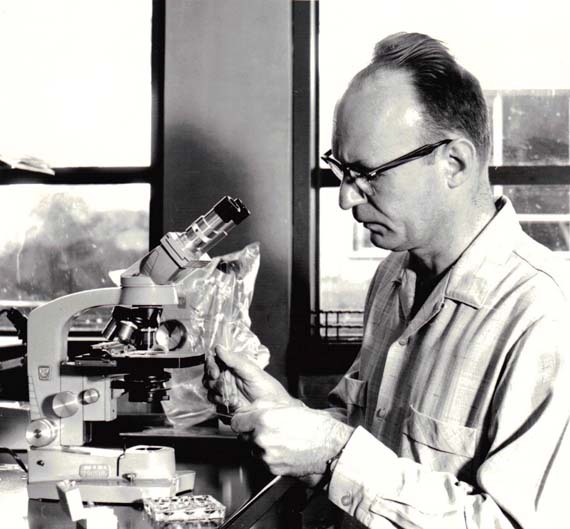
Below, you’ll find two heartfelt tributes contributed by Dr. Steve Stricker and Dr. Megan Dethier. We would be grateful if you would pass along your own “Koz” story. We will compile them and happily share them with the Kozloff family. In July, we launched our fundraising campaign by e-mailing many past students and colleagues. Our goal is to raise $100,000 for this worthy scholarship and in doing so honor the man who inspired so many. If you would like to join our collective effort, please send your contributions (along with your Koz memories) to Rachel Anderson at rachelea@uw.edu. Checks can be made to the University of Washington Foundation, designating the EUGENE N KOZLOFF ENDOWED SCHOLARSHIP. You can also give online.
By mail:
Rachel Anderson
Friday Harbor Labs
620 University Road
Friday Harbor, WA 98250
If you have any questions or if you would like to make a one time or multi-year pledge, please contact Rachel Anderson at Friday Harbor Labs, rachelea@uw.edu, 206.616.0760.
Thank you so much!
In Tribute to a Masterful Biologist
By Dr. Steve Stricker, University of New Mexico
Forty years ago, I was inspired by a summer-long course on marine invertebrates taught by the renowned zoologist D.P. Abbott at Hopkins Marine Station. After asking my undergraduate advisor where I should go to continue graduate studies along those lines, he immediately recommended Eugene Kozloff at the University of Washington’s Friday Harbor Laboratories, since as he put it so succinctly and with such high praise, Kozloff was “a laughing Abbott”. Thus, I headed up to the Pacific Northwest, and as a wet-behind-the-ears grad student, I quickly got to see Koz in his element both in the classroom and out on low tides as he joyfully taught everyone within a very long earshot about the many wonders of the living world.
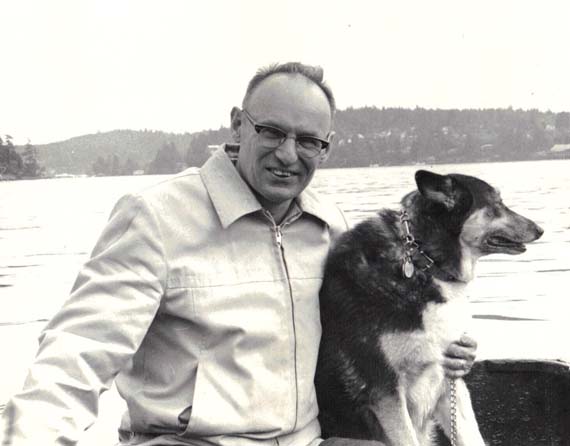
In those days, there was obviously no option for summoning up a never-ending supply of info with the simple click of a keyboard. Instead, you would walk over and ask the “wizard of Koz” your obscure question about invertebrates, vertebrates, plants, protists, or just about any other carbon-based life form. Then, perhaps after a short prelude like “Now, are you just trying to test me?”, Koz would time and again amaze you with his answer and send you away as another happy customer until you would soon again require the services of the original Google scholar.
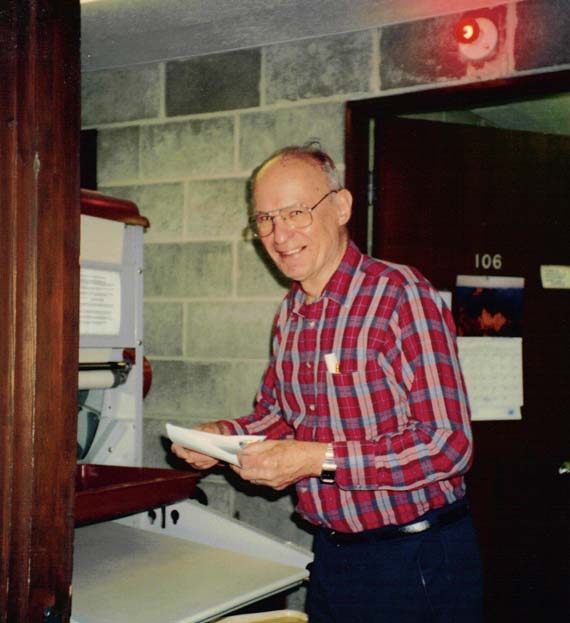
However, what truly set Koz apart was his uncanny ability to move seamlessly from one subject to another. For example, during the first Invert Zoo class I TAed for Koz, he was discussing dentition patterns in bivalve shells and mentioned the taxodont type of articulation where similar kinds of teeth help hold together the two valves of the shell. He then contrasted taxodont teeth with the heterodont pattern of dissimilar hinge teeth that can vary in number from taxon to taxon. To illustrate this concept, Koz mentioned that in the quadrants of some rodent jaws, you have a 1003 arrangement of incisors, canines, premolars, and molars, whereas in other mammals the numbers of these four types of teeth differ. He then looked at the 1003 written on the board, and in passing sighed: “Ah yes, mille e tre… Don Giovanni”. Before he could move on to the next bivalve-related subject, he was asked to explain that reference. So, he recounted in detail how Don Giovanni’s servant in Mozart’s opera was cataloging the great lothario’s love conquests in various countries before ending with the mille e tre 1003 figure for Spain. Thus, there was Koz nimbly bouncing from clams to rats to Don Giovanni without so much as batting an eye.
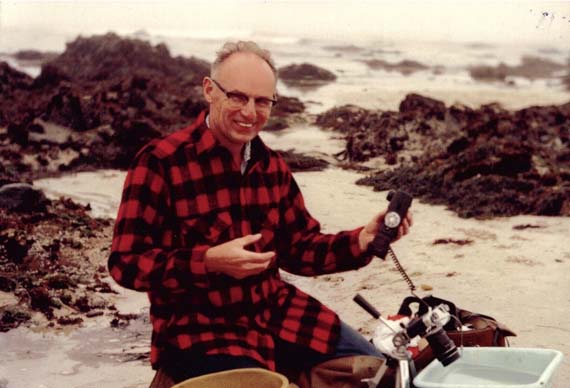
Koz has always been a very humble person. This humility is evidenced by the way he typically refers to himself as Mr. Kozloff and by how he never flaunts his fine academic pedigree. In fact, although he received his undergraduate and Ph.D. degrees at UC Berkeley studying under some of the great zoologists of the time, he often poked fun in a self-effacing way at the revered institution and by extension at its alumni. For instance, early in one summer session, Koz came to the Labs dining hall dressed in his unassuming beige windbreaker that undoubtedly made some of the new students wonder why the janitor was joining them for lunch. After asking where his table mates were from, he found a student who proudly proclaimed: UC Berkeley. At which point, Koz deadpanned: “UC Berkeley? I know they have a campus in Riverside and one in Irvine…” The student then proceeded to sputter: “Berkeley is consistently ranked as one of the top universities…”, before Koz let out his inimitable “hee-hee-hee”, and the student realized he was being had.
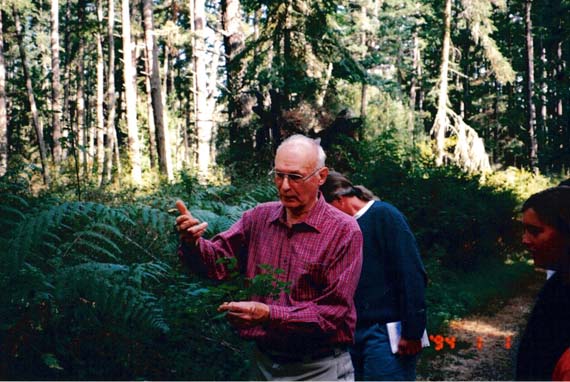
Koz was a legendary and inspiring teacher who knew how to deliver his lectures and interact with the class in ways that students could understand and appreciate. However, his teaching prowess should not completely overshadow his fine publication record. He published in various respected journals even well beyond his formal retirement, and over the years, he was able to compile essentially single-handedly a significant body of work, particularly related to such “lesser taxa” as orthonectids, kinorhynchs, acoels, and ciliates. Moreover, any one of his much admired books, from his revision of Galigher’s Practical Microtechniques, to Seashore Life, to Plants and Animals of the Pacific NW, to his Marine Invert keys, to his Invert Zoo text, to the Plants of WA, OR, and BC, or to his coauthored book on Plants of the San Francisco Bay Area should provide a noteworthy and lasting legacy in its own right.
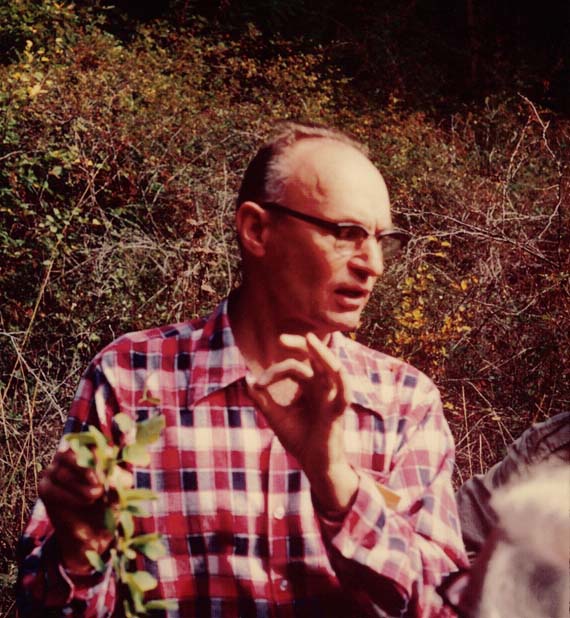
In addition to such scientific accomplishments, Koz comes fully loaded with highly commendable personality traits. To illustrate just three of these—his vigor, upbeat outlook on life, and kind-hearted treatment of people, I never heard him complain about aches and pains or shirk any of the heavy lifting, even well into his 70s, and he always, always was in a good mood. He also did not waste his boundless energy cutting down others. About the closest thing to a negative comment I can remember him making was after a talk given by a young VIP who seemed to think he knew all there was to know. When asked what he thought of the speaker, Koz aptly noted “the only thing he hasn’t experienced is inexperience”.
Perhaps the attribute I associate with Koz more than anything else, though, is his tremendous sense of humor. Some of his jokes or catchphrases might befuddle students today, like: “If the bell rings, just file out quietly and let the next class come in so I can continue to lecture” (What bell’s going to ring?), or “I don’t mind you checking your watch; it’s when you start to shake it to see if it’s still running that I get bothered” (Why would I shake my Apple Watch?), or “I missed you like a dog misses his stick” (Say what??). However, back in the day, such good-spirited quips couldn’t help but generate smiles and outright belly laughs, and although Koz treated his craft with the utmost respect and was dead serious about making sure you had your facts and concepts correct, he couldn’t help but share his joy and love for learning about organisms in his own special way by also providing a chuckle or two along the way.
I can’t think of a more fitting tribute than for the Labs to create this endowment both in recognition of Koz’s contributions to science and in celebration of his being for nearly 95 years now the one and only Koz. Over his several decades at FHL, Koz was quite simply a living treasure who continues to be adored by countless students, colleagues, and friends. I am sure that all of these Kozophiles have their own favorite Koz stories to share. In my case, I feel extremely fortunate to have learned a great deal about invertebrates and life in general from Eugene N. Kozloff, a true master of Biology—a label which prompted him at one point to chide in Koz-like fashion: “Just make sure you pronounce the ‘M’ and the ‘ter’ distinctly”.
Another Kozloff Tribute
Dr. Megan Dethier, FHL Associate Director of Academics and the Environment
Steve Stricker has practically said it all – touching on Koz’s encyclopedic knowledge (a true Renaissance man – they don’t make ‘em like that anymore), wicked sense of humor, and boundless love of the natural world. I vividly remember my first meeting with him -- going to his office in Seattle (back when he still had one) to ask him some question, getting a very satisfactory answer, and then being startled by him saying “Now go away and don’t bother me anymore” – which I later recognized as his way of saying “I enjoyed talking to you”! Koz was one of the most effective and inspirational teachers I have ever had the pleasure of learning from. These days, most lecturing in biology classes is done with the aid of powerpoint slides, taking images from the web to illustrate structures and processes. A really old-fashioned instructor, like myself, gives paper handouts with details that I want students to remember. But neither of those methods can hold a candle to Koz’s lectures, which not only were engaging and organized by themselves, but while talking he simultaneously drew on the board, with multiple colors of chalk, gorgeous diagrams of the animals he was lecturing about. Students essayed to copy these diagrams into their notes, and by doing so of course began the process of embedding the material into their memories… far more than staring at a diagram on a screen! Koz was a demanding instructor, expecting others to match his commitment to and engagement with the subject; his most critical assessment of an under-performing undergraduate was to say that he or she was a “part-time student”. He was a Full-Time Teacher – totally committed to undergraduate education – when he was teaching a course at the Labs, the students got his undivided attention for the length of the course, creating a rich experience unmatched anywhere else. It is thus especially appropriate that this fund, in Koz’s name, be targeted to scholarships for undergraduates. Some will likely use the financial aid to come to FHL to take what we still think of locally as Koz’s course – the Zoobot Program, which he and Richard Norris taught for many years and which inspired many an undergraduate to continue in a career in marine science. It is a fitting legacy.



